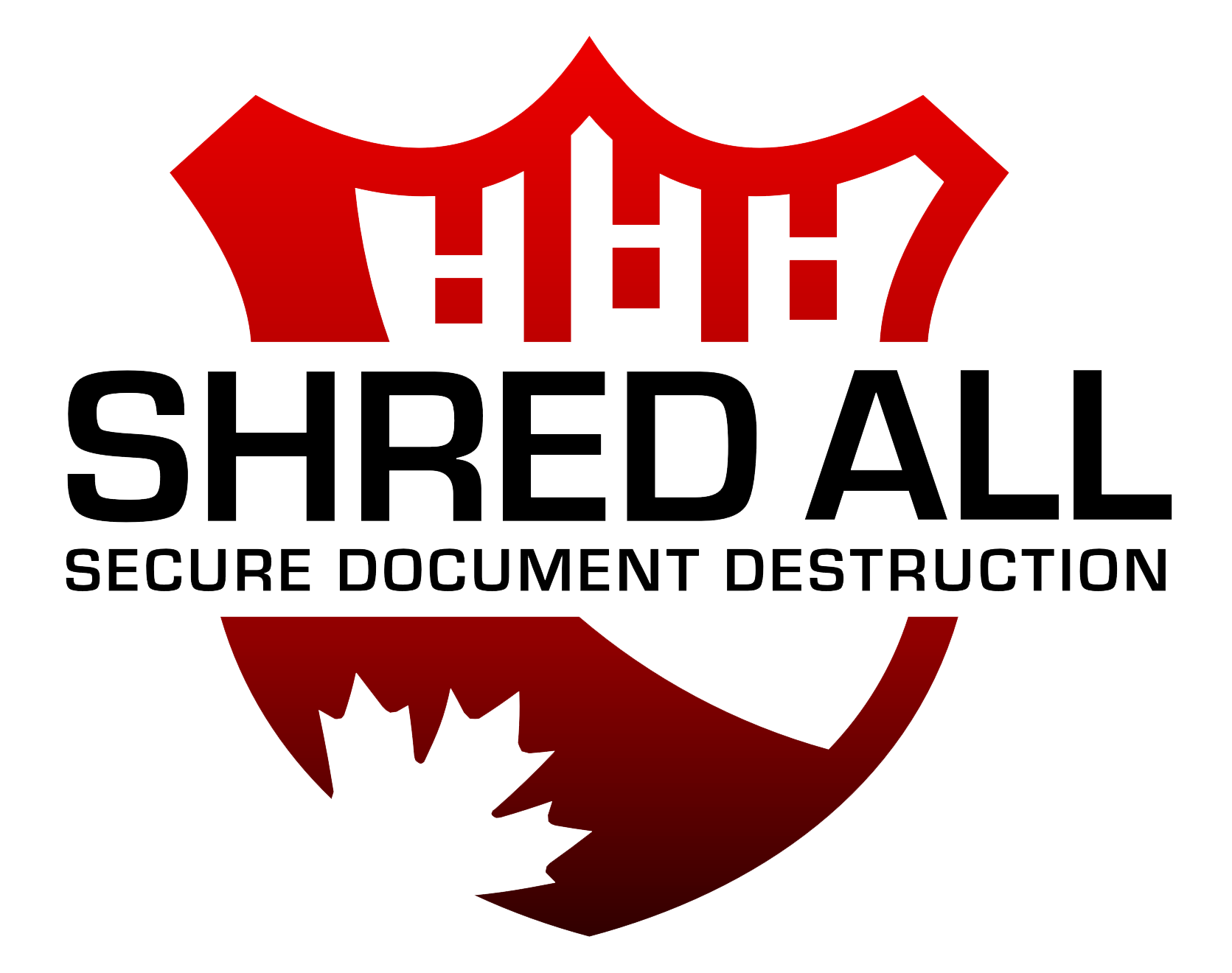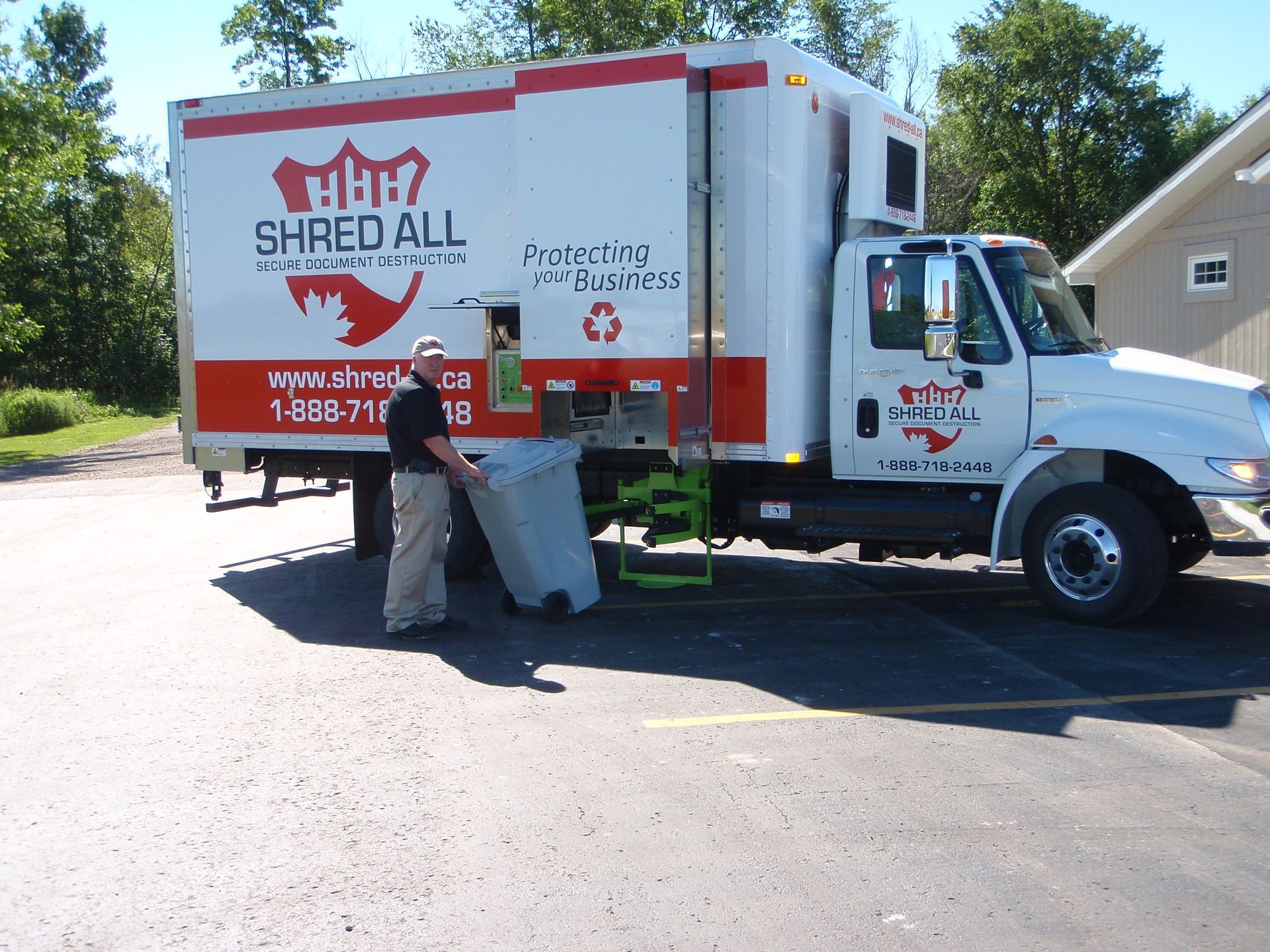Useful Info and Resources
Frequently Asked Questions
What to Shred
Shred All helps you protect your business, security and privacy by destroying any confidential information that you don’t want to fall into the hands of the wrong people.
Documents Recommended for Shredding
- Customer Lists and files
- Bids and Quotes
- Inventory lists
- Invoices
- Cancelled Cheques
- Contracts
- Credit Card Receipts
- Budget Plans
- Financial Records
- Legal Documents
- Accounting Information
- Blueprints
- Tax records
- Payroll data
- Investment Portfolios
- R & D Reports
- Signatures
- Correspondence
- Personal Information
- Junk mail in your name
Have questions about what documents to shred?
Call
1-888-718-2448 to find out more about secure document destruction and how it can help your business.










